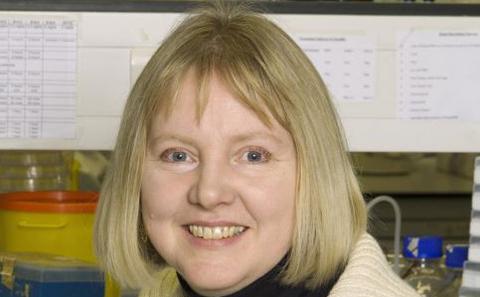Angiogenesis and heart repair Seminar

- Time:
- 13:00 - 14:00
- Date:
- 7 March 2014
- Venue:
- Southampton General Hospital IDS Lecture Theatre
For more information regarding this seminar, please telephone Kim Lipscombe on 02380 597747 or email K.R.Lipscombe@southampton.ac.uk .
Event details
Helen Arthur is the principal investigator of the molecular cardiovascular medicine group. Her research focuses on how the TGFbeta family of cytokines regulates endothelial cell responses to control angiogenesis and cardiovascular development.
To investigate these complex events, the research uses mouse models in which TGFbeta receptors, endoglin or Tgfbr2, are depleted specifically in endothelial cells in a temporally controlled way. The group's work on endoglin has shown that angiogenesis is blocked during embryonic development in endoglin null mice. Similarly, angiogenesis is delayed if endoglin is depleted using inducible Cre-loxP genetics in adult mice. The group is currently testing whether targeting endoglin can be used to inhibit tumour angiogenesis and block tumour growth in several pre-clinical mouse cancer models.
Role of TGFβ Receptors in Cardiovascular Development and Disease
The formation of new blood vessels, angiogenesis, is an essential developmental process that is also a target for treating many major diseases. For example, coronary heart disease causes the obstruction of blood vessels supplying heart tissue, leading to cardiac cell death. Here, increasing angiogenesis can re-establish the blood supply to minimise heart damage. On the other hand, a tumour needs new blood vessels to grow larger than the size of a pea, so cancer growth can be minimised by restricting angiogenesis.
Angiogenesis is regulated by a number of molecular signalling pathways and our work revolves around the role of one of these - the TGFβ family signalling pathway. The importance of the TGFβ family of ligands in regulating angiogenesis and cardiovascular development was first revealed in human genetic studies where inherited mutations in several TGFβ receptors leads to congenital cardiovascular abnormalities. For example, mutations in the receptors, endoglin or activin like kinase-1 (ACVRL1), are associated with the bleeding disorder, Hereditary Haemorrhagic Telangiectasia (HHT). More recently, mutations in the TGFβ type II receptor (TGFBR2) have been found to be associated with Loeys-Dietz syndrome and aortic aneurysms.
Using a combination of mouse models and cell culture systems, we have shown that endoglin is essential for cardiovascular development, is dynamically regulated during angiogenesis, and that depletion of endoglin leads to arteriovenous malformations, a major clinical feature of HHT disease Endoglin’s role in angiogenesis is also important because this represents a potential target for anti-angiogenic therapy for cancer patients. We are currently testing this role using tumour models. In parallel work, we have shown that Tgfbr2 is expressed by endothelial cells where it is required for normal heart and cerebralblood vessel development. We aim to understand how deficiencies in the TGFβ signalling pathway lead to these phenotypes so that in the longer term we can prevent, or improve treatments for, these types of congenital cardiovascular defects.
Recently, our laboratory has begun to investigate the contribution of cultured adult heart cells, known as cardiospheres, to the repair of heart function following myocardial infarction (a heart attack). We are measuring heart function using MRI, and testing whether the high level of endoglin expressed by cardiosphere derived cells enhances heart repair via a pro-angiogenic mechanism. Ultimately, our goal is to use this knowledge to improve current therapies for heart patients.
Speaker information
Professor Helen Arthur, University of Newcastle